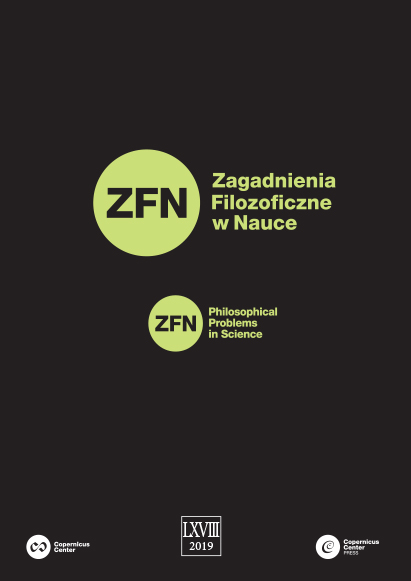Józefa Życińskiego koncepcja racjonalizmu umiarkowanego: epistemologiczna i doksalogiczna funkcja podmiotowego commitment
Joseph Życiński’s understanding of temperate rationalism: epistemological and doxalogical role of subjective commitment
Author(s): Zbigniew LianaSubject(s): Philosophy, Epistemology, Special Branches of Philosophy, Philosophy of Science
Published by: Copernicus Center Press
Keywords: subjective commitment;underdetermination principle;presuppositions;justification circle;principle of uncertainty;epistemic axiology;personal knowledge;temperate rationalism;pragmatic rationality
Summary/Abstract: One of the main problems of modern rationalistic theories of science is the non-eliminability of the subjective factor in the development of science. Temperate rationalism of Newton-Smith was an attempt to solve this problem. J. Życiński developed his own version of temperate rationalism in which the subjective factor played much more substantial role. In the article I am presenting his specific idea of the personal commitment as a necessary condition for rationalism and science. In the first section I proceed to reconstruct ˙ Życiński’s argument leading him to the conclusion of this epistemological necessity. Next in the section 2 I present his idea of the epistemological uncertainty principle as a consequence of the subjective commitment. In sections 3 and 4 I explore axiological and pragmatic aspects of the Życiński solution. Finally, in the section 5 I do compare his temperate rationalism with Newton-Smith’s proposal in the context of the Polanyi’s idea of personal knowledge showing differences in their respective approach to the role of the subjective factor in science and rationalism.
Journal: Zagadnienia Filozoficzne w Nauce
- Issue Year: 2020
- Issue No: 68
- Page Range: 117-184
- Page Count: 68
- Language: Polish

